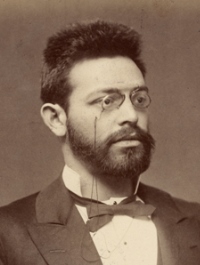 W
WJózsef Bánóczi was a Hungarian Jewish scholar.
 W
WErik Axel Blomberg was a Swedish poet, translator and critic.
 W
WRobert Bly is an American poet, essayist, activist and leader of the mythopoetic men's movement. His best-known prose book is Iron John: A Book About Men (1990), which spent 62 weeks on The New York Times Best Seller list, and is a key text of the mythopoetic men's movement. He won the 1968 National Book Award for Poetry for his book The Light Around the Body.
 W
WAda Brodsky was an Israeli radio journalist and translator from German into Hebrew. She was a winner of the Goethe Medal in 1995 for her contributions to the cultural relationship between Germany and Israel.
 W
WFrançois Cacault was a French diplomat of the Revolutionary and Napoleonic periods.
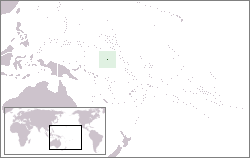 W
WReverend Philip Adam Delaporte was a German-born American Protestant missionary who ran a mission on Nauru with his wife from 1899 until 1915. During this time he translated numerous texts from German into Nauruan including the Bible and a hymnal. He was also one of the first to create a written form for the Nauruan dialect, published in a Nauruan-German dictionary.
 W
WMajor Nikolay Dmitrevich Dyatlenko was a Soviet officer, interrogator and translator who was part of a team that attempted to deliver a message of truce to the German Sixth Army at the Battle of Stalingrad in January 1943. He also acted as the translator at the interrogation of Field Marshal Friedrich Paulus a few weeks later.
 W
WElizabeth Anne Finn (1825–1921) was a British writer and the wife of James Finn, British Consul in Jerusalem, in Ottoman Palestine between 1846 and 1863. She and her daughter co-founded the Distressed Gentlefolk's Aid Association, the predecessor of Elizabeth Finn Care.
 W
WGeorge Fleming (1833–1901) was a Scottish veterinary surgeon. He was a prolific writer, and supported the passing of the Veterinary Surgeons Act 1881, which regulated the profession, in his time as President of the Royal College of Veterinary Surgeons.
 W
WMarchioness Marianna Florenzi, née Marianna Bacinetti, was an Italian noblewoman and translator of philosophical works. She was also known by her married name of Marianna Florenzi Waddington.
 W
WDenis Ivanovich Fonvizin was a playwright and writer of the Russian Enlightenment, one of the founders of literary comedy in Russia. His main works are two satirical comedies, one of them Young ignoramus, which mock contemporary Russian gentry and are still staged today.
 W
WAbraham Shalom Friedberg, known also by the pen name Har Shalom and the acronym Hash, was a Russian Jewish Hebrew writer, editor, and translator.
 W
WHenry Hunter was a Scottish minister who translated the works of noted scholars including Leonard Euler and Johann Kaspar Lavater.
 W
WJohn Fletcher Hurst was an American bishop in the Methodist Episcopal Church and the first Chancellor of the American University in Washington, D.C.
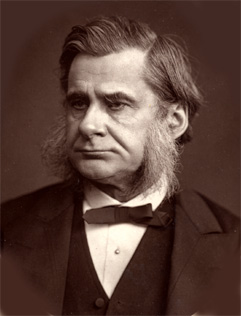 W
WThomas Henry Huxley was an English biologist and anthropologist specialising in comparative anatomy. He is known as "Darwin's Bulldog" for his advocacy of Charles Darwin's theory of evolution.
 W
WVladeta Jerotić was a Serbian psychiatrist, psychotherapist, philosopher and writer.
 W
WPavlos Kalligas was a Greek jurist, writer and politician, who served as professor at the University of Athens, Member and Speaker of the Hellenic Parliament, cabinet minister for Foreign Affairs, Education, Finance and Justice and chairman of the National Bank of Greece.
 W
WJohn Kenrick was an English classical historian.
 W
WVentseslav Konstantinov was a Bulgarian writer, aphorist and translator of German and English literature.
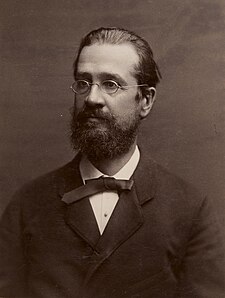 W
WJulius Leopold Fredrik Krohn was a Finnish folk poetry researcher, professor of Finnish literature, poet, hymn writer, translator and journalist. He was born in Viipuri and was of Baltic German origin. Krohn worked as a lecturer on Finnish language in Helsinki University from the year 1875 and as a supernumerary professor from 1885. He was one of the most notable researchers into Finnish folk poetry in the 19th century. His native language was German.
 W
WMarie Elizabeth de LaFite (1737–1794) was a published author, translated English texts into French, and was a Dutch governess before joining the service of Queen Charlotte of England while her native country went through the French Revolution.
 W
WWilhelm Veniaminovich Levick was a Russian poet, translator, literary critic and artist. He translated Shakespeare, Byron, Baudelaire, Goethe, Schiller, Heine, La Fontaine, Mickiewicz, Ronsard, Du Bellay, Camões, Petrarch, Gautier, Lenau, Aragon and others. Many famous poets, translators and writers have noted that Levik translations are characterized by high culture, poetry and precision in the transmission of the original.
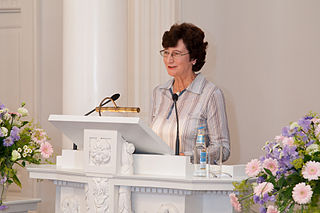 W
WAnne Lill is an Estonian classical philologist and translator. She is Professor Emeritus at the University of Tartu.
 W
WAndrea Maffei was an Italian poet, translator and librettist. He was born in Molina di Ledro, Trentino. A follower of Vincenzo Monti, he formed part of the 19th-century Italian classicist literary culture. Gaining laurea in jurisprudence, he moved for some years to Verona, then to Venice and finally to Milan, where in 1831 he married contessa Clara Spinelli. They separated by mutual consent on 15 June 1846.
 W
WMordechai Tzvi Maneh, also known by the pen name Ha-Metzayer, was a Russian Hebrew lyric poet, translator, and artist.
 W
WPetros Márkaris is a Greek-Armenian writer of detective novels starring the grumpy Athenian police investigator Costas Haritos.
 W
WUku Masing was an Estonian philosopher. He was a significant figure in Estonian religious philosophy. Masing also wrote poetry, mostly on religious issues. Masing authored one novel, Rapanui vabastamine ehk Kajakad jumalate kalmistul in the late 1930s, which was published posthumously in 1989. As a folklorist, he was a distinguished researcher of fairy tales, contributing to the international Encyclopedia of the Folktale. He was awarded the Righteous Among The Nations by Yad Vashem and the Israeli Supreme Court for his participation during the Holocaust in helping a Jew in Estonia escape capture from 1941 until the end of the war. His actions exposed him to great danger during this period requiring him to meet with his friend as well as lying to the Gestapo.
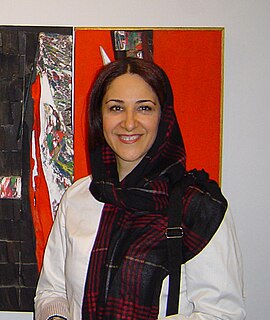 W
WMahshid Mirmoezzi is an Iranian translator from the German language. She has translated over 40 works into the Persian language. She has received several prizes, including the Parvin Award for her translation of Pascal Mercier's Night Train to Lisbon.
 W
WMiriam Markel-Mosessohn was a Russian author and translator who wrote in Hebrew.
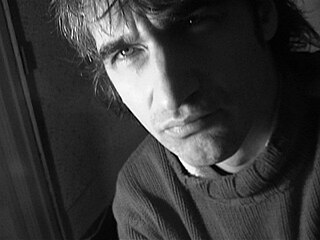 W
WGregory Motton is a British playwright and author. Best known for the originality of his formally demanding, largely a-political theatre plays at the Royal Court in the 1980s and 1990s, state of the nation satires in the 1990s, and later for his polemics about working class politics, A Working Class Alternative To Labour and Helping Themselves – The Left Wing Middle Classes In Theatre And The Arts.
 W
WCharlotte Sophia Fitzalan-Howard, Duchess of Norfolk was a daughter of the 1st Duke of Sutherland and his wife, Elizabeth, suo jure Countess of Sutherland.
 W
WFranciszek Henryk Siła-Nowicki was a Young Poland poet, a mountaineer, socialist activist, and designer of the Orla Perć High Tatras mountain trail.
 W
WBoris Leonidovich Pasternak was a Russian poet, novelist, and literary translator. Composed in 1917, Pasternak's first book of poems, My Sister, Life, was published in Berlin in 1922 and soon became an important collection in the Russian language. Pasternak's translations of stage plays by Goethe, Schiller, Calderón de la Barca and Shakespeare remain very popular with Russian audiences.
 W
WSurjit Patar is a Punjabi language writer and poet of Punjab, India. His poems enjoy immense popularity with the general public and have won high acclaim from critics.
 W
WRainis was the pseudonym of Jānis Pliekšāns, a Latvian poet, playwright, translator, and politician. Rainis' works include the classic plays Uguns un nakts and Indulis un Ārija, and a highly regarded translation of Goethe's Faust. His works had a profound influence on the literary Latvian language, and the ethnic symbolism he employed in his major works has been central to Latvian nationalism.
 W
WPaul-Otto Schmidt was an interpreter in the German foreign ministry from 1923 to 1945. During his career, he served as the translator for Neville Chamberlain's negotiations with Adolf Hitler over the Munich Agreement, the British Declaration of War and the surrender of France.
 W
WMoses Schulbaum was an Galician Jewish Hebrew writer, translator, and lexicographer.
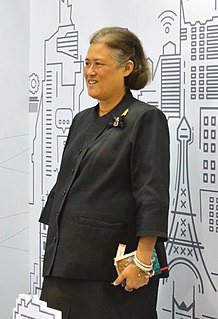 W
WPrincess Maha Chakri Sirindhorn, formerly Princess Sirindhorn Debaratanasuda Kitivadhanadulsobhak, is the second daughter of King Bhumibol Adulyadej and younger sister of King Vajiralongkorn.
 W
WXenophon Stratigos was a senior Greek Army staff officer who played a major role in the Balkan Wars of 1912–13 and the Asia Minor Campaign in 1921–22, serving also as de facto Chief of the Hellenic Army General Staff in 1916–17 and in 1921. He retired from the army in September 1921 and served as Minister for Transport in 1922. Condemned to life imprisonment at the Trial of the Six, he was later pardoned and left for Switzerland, where he lived until his death.
 W
WStijn Streuvels, born Franciscus (Frank) Petrus Maria Lateur, was a Belgian writer.
 W
WErnest Jacques Thiel was a Swedish financier and art collector whose former villa in the Stockholm park area Djurgården today houses the Thiel Gallery.
 W
WLois Tobío Fernández was a Galician diplomat, writer, translator and philologist.
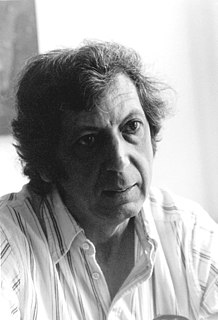 W
WJosé María Valverde Pacheco was a Spanish poet, essayist, literary critic, philosophy historian, and Spanish translator.
 W
WUlrika Carolina Widström, was a Swedish poet and translator.
 W
WSerhiy Viktorovych Zhadan is a Ukrainian poet, novelist, essayist, and translator.